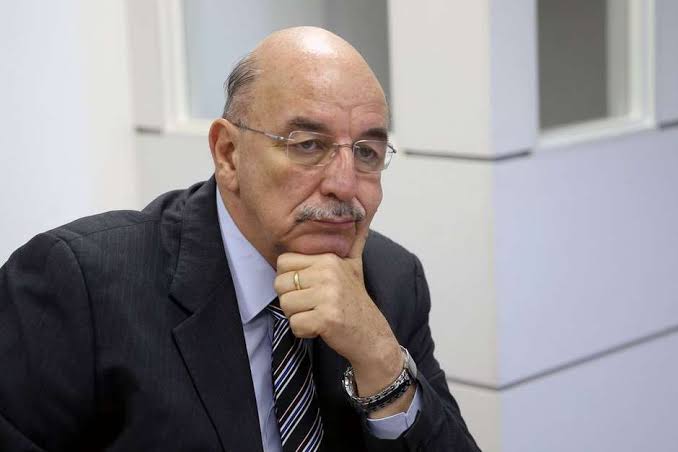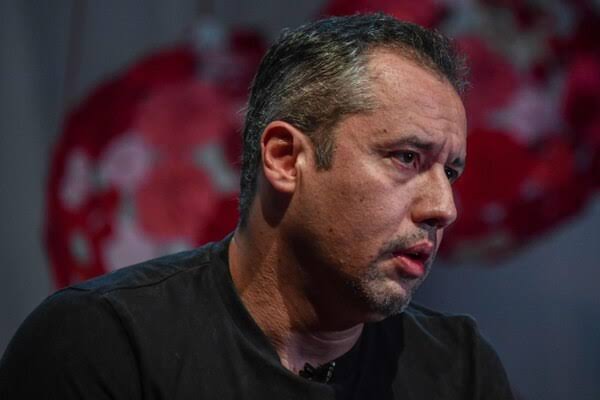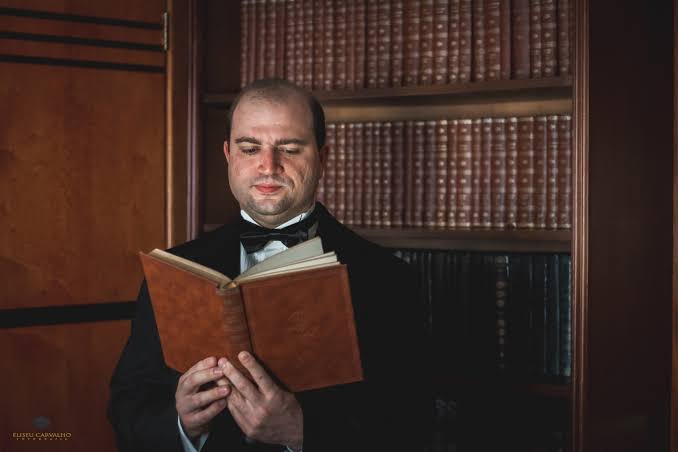RIO DE JANEIRO, BRAZIL – Directorships of public agencies have long been treated as patronage appointments in Brazil; one of the perks of attaining office. As such they represent an opportunity for an incoming President to reward their loyal supporters with plum positions and to exert some influence, in this case, on the broader national trajectory of culture and the arts.
In the new Bolsonaro administration, several Ministerial appointments, and now key directorships in the cultural sphere, seem to have been heavily influenced by right-wing ideologist, Olavo de Carvalho.
Often described as “Bolsonaro’s Guru,” Carvalho is a self-taught philosopher, former astrologer, and full-time polemicist who has now lived outside Brazil – in rural Virginia, in the USA – for nearly fifteen years.

For a fervent following on social media, Carvalho champions individual liberties – especially in relation to gun ownership – and evangelical Christianity and his aggressive, obscenity-laced vilification of Islam, globalism, communism and the left in general, has encouraged comparisons with Steve Bannon and Rush Limbaugh.
His rapid rise to influence in the Bolsonaro government is a striking feature of the populist revolution that has upended Brazilian politics and is most obviously manifest in the culture war he has inspired.
Shortly after ascending to power, President Bolsonaro dissolved the federal government’s Ministry of Culture, reducing it to a secretariat (along with Sports and Social Development) within the new Ministry of Citizenship, headed by Osmar Terra.
Trained in medicine, Terra conceded his only cultural expertise was knowing “how to play the berimbau” (a single-stringed instrument played to accompany “capoeira” bouts).
At the time the move was widely viewed as the opening salvo of a culture war designed to undermine the influence of what Carvalho has characterized as “cultural Marxism” in Brazilian society. Indeed, the administration quickly turned its attention to curtailing government subsidies and tax incentives for arts and cultural projects which the President described as a waste of resources.

As the year concludes, these early initiatives have proved an accurate foreshadowing of events. Following the controversial November appointment of Roberto Alvim as Secretary of Culture, the continuity of leadership in the country’s cultural institutions has been dramatically ruptured.
In a flurry of firings and appointments, Alvim, President Bolsonaro – and by extension, Olavo de Cavalho – have sought to impose their distinctive brand of evangelical conservatism on the nation’s cultural agencies. Their choices have been surprising – and disturbingly inappropriate.
At the Palmares Cultural Foundation, the “first public institution focused on the promotion and preservation of cultural, historical, social and economic values resulting from the black influence in the formation of Brazilian society,” the new appointment was journalist Sérgio Nascimento de Camargo. A quick search of the internet reveals that Camargo describes himself as “black right-wing, contrary to victimization and political correctness.”
Camargo has publicly described slavery as “beneficial to descendants since blacks have better lives in Brazil than in Africa,” advocated for the end of the Black Awareness Day holiday calling it “a disgrace,” and, asserted that “real” racism doesn’t exist in Brazil, claiming “the blacks here are stupid and misinformed by the left.”
The announcement of his appointment prompted an instant backlash: earlier this month, activists from the Brazilian Black Movement stormed the Fundacão Palmares building in protest. Subsequently, a Magistrate of the 18th Federal Court of Ceará barred Camargo’s appointment on the grounds that his published statements have “the power to insult the very audience that should be protected by the body that he presides.” As of now, the position remains unfilled.

At the National Library of Brazil (Biblioteca Nacional), the appointment of new President, Rafael Alves da Silva – known publicly as Rafael Nogueira – also met with protest concerning his suitability for the role, in this case from many of the institutions own staff. Nogueira, a former high school teacher and professor of distance learning in Santos, is a self-described royalist and “dedicated student” of Olavo de Cavalho who campaigned for Jair Bolsonaro in the last election.
Nogueira’s appointment gained wider notoriety after the discovery of an early social media post in which he criticized public education, observing: “textbooks are full of songs by Caetano Veloso, Gabriel O Pensador, Legião Urbana. Then they don’t know why everyone is illiterate.” He has since described the post as “a joke taken out of context” claiming he doesn’t intend to “turn the library into a right-wing megaphone.”
At the National Arts Foundation (Funarte), conservative Christian conductor Dante Mantovani has just been named President. He is also a (self-described) student of Olavo de Cavalho with a high – and controversial – social media profile whose appointment quickly attracted criticism largely because of his penchant for peddling bizarre conspiracy theories.
Among many other extraordinary “hot takes” on matters cultural, Mantovani has described the United Nations Educational, Scientific and Cultural Organization (UNESCO) as a “propaganda machine for pedophilia” and claimed that rock music leads to abortion and Satanism, citing both Elvis Presley and John Lennon as prime examples.

Probably most baffling was a video (published on his own YouTube channel) where he defended Carvalho’s assertion that the Beatles emerged as part of a Soviet plot to promote communism with the lyrics to their songs written by the Frankfurt School philosopher, Theodor Adorno.
Elsewhere on his YouTube channel, Mantovani describes the popular musicians who performed at the opening of the Rio de Janeiro Olympics in 2016 (a group that included Caetano Veloso, Gilberto Gil, Anitta, Marcelo D2, Paulinho da Viola, and Jorge Ben Jor) as “loud freaks” performing “sound aberrations that I have no courage to call music.”
For Mantovani, appointed to run the national agency with a mission to “promote and incentivize the production, practice, development, and diffusion of the arts throughout the country,” Brazil’s “true culture” is to be found in the classical music of Heitor Villa Lobos and Carlos Gomes.
A familiar pattern is also unfolding at the National Film Agency (ANCINE) following intense friction between the agency and the new administration concerning the kinds of projects receiving support. Declaring the agency must accept a “content filter” or face closure or privatization, President Bolsonaro fired director Christian de Castro, froze the budget and transferred its offices to Brasilia, a series of moves widely regarded as censorship by professionals in the industry.

Accusing ANCINE of using public funds to promote pornography – a reference to its co-financing of “Bruna Surfista,“ a film about a middle-class Rio call girl – the President insisted the nation’s movie production should defend “family values” and “pay tribute to Brazilian heroes.” Although a new head has not yet been appointed, the President has made clear he wants an evangelical who can “recite 200 Bible verses by heart” and has “knees worn out from praying.”
Taken individually each of these scenarios seem extreme and the appointments strikingly inappropriate for their respective institutions. Viewed collectively, a clear pattern emerges. To a man (and thus far they are all men), the new administration has appointed (or likely will in the case of ANCINE) outspoken ultra-conservative partisans, many avid followers of Olavo de Cavalho, who are prone to making incendiary comments on social media and in many cases lack formal qualifications for their positions.

Last month, a publicly funded clown company was about to stage a performance for an audience of youngsters about a fictitious dictatorship where hugging was prohibited, when a government official ordered its cancellation. Apparently, by referencing politics, however obliquely, the clown company had violated their government contract.
Given the recent politicization of the cultural sphere, it’s hard not to conclude the President has already sent in the clowns.

